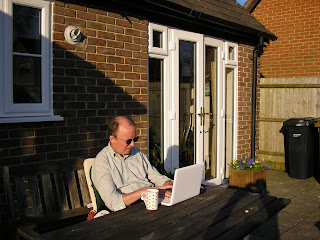Charities are suddenly under
fire. Any misdemeanour (and there clearly have been a number, charity workers
being as human as the rest of us with less altruistic occupations) is now leapt
upon with the pharisaic zeal which seems to be the mark of this age. However I
wonder whether charity workers are any more prone to sexual exploitation than,
say, businessmen. Are the media up in indignant arms over people at a sales’
conference in the developing world using and abusing local women and minors? I
suspect it happens.
I understand that there is a
peculiar dissonance between the altruistic aims of an aid charity and such
behaviour. Yet is there an element of foreign-aid bashing in the obsessive
focus on a systemic failure in Oxfam? Is it a coincidence that it comes within
weeks of the Oxfam report released at Davos, which pointed out “Eighty two
percent of the wealth generated last year went to the richest one percent of
the global population, while the 3.7 billion people who make up the poorest
half of the world saw no increase in their wealth, according to a new Oxfam
report released today”? Discrediting charities which speak uncomfortable truth
to power would allow some very rich and powerful people to sleep more easily at
night. It would also suit right-wing newspapers which campaign to reduce our
country’s overseas aid budget of a mere 0.7% GDP. And of course politicians of
an insular persuasion will use it as fuel to divert money from the ethical, and
self-interested by the way, relief of our fellow human beings.
I trust that the overwhelming
good performed by such charities will not be obscured by the fallibility of
their human employees. We create enough misery throughout the world in one way
or another. It would be an even bleaker place were charities such as Oxfam and Save the Children
not to exist or were starved of support. It's tragic that 7000 donors have cancelled their subscriptions to Oxfam. Who will suffer? Not the donors.
Nevertheless, even before the
Oxfam news, I had been thinking about the role of charities, maybe because I’d
been reading Bob Holman’s biography of Keir Hardie (http://www.lionhudson.com/page/detail/?K=9780745953540). He famously had a
contretemps with Lord Overtoun, the Scottish industrialist whose much lauded
philanthropy did not extend to his own employees.
I wrote to a theologian I know:
“Do you think churches setting up
things like food-banks, homelessness shelters and street pastors is a good
thing?
“What I’m wondering is this. Were they not there, the true effects of government cuts in the name of financial responsibility would be acutely obvious and politically intolerable. As it is, the churches’ benevolence mitigates the effects of cuts in benefits and cuts to policing, and the vulnerable suffer, so that the well-off can remain comfortable. ‘Let them make do with sticking plasters.’
“It suddenly occurred to me.”
“What I’m wondering is this. Were they not there, the true effects of government cuts in the name of financial responsibility would be acutely obvious and politically intolerable. As it is, the churches’ benevolence mitigates the effects of cuts in benefits and cuts to policing, and the vulnerable suffer, so that the well-off can remain comfortable. ‘Let them make do with sticking plasters.’
“It suddenly occurred to me.”
He sagely replied, “There is a
danger in providing permanent sticking plasters instead of sorting the problem;
but I don't see how Christians can pass by on the other side when the man is
lying there mugged. But if it becomes an excuse for not pushing on the
political structural fronts, eg working for proper policing on the
Jerusalem-Jericho road or a health service that is meeting the needs, then
we are at fault.... And that easily happens with conservatives.”
As far as I know, this theologian
is not a socialist. Keir Hardie (1856-1915) who shared his Christian faith certainly
was. He was, as Professor Holman suggests, possibly Labour’s greatest hero. Hardie
rightly wrote, “Poverty can never be remedied by charity, but only by justice.”
That was his political motivation. “The Labour Party stands for something which
no other party does. Its aim is the abolition of poverty.” What a great aim! Oxfam's vision is "We won't live with poverty". Little wonder some people would like to undermine it.











